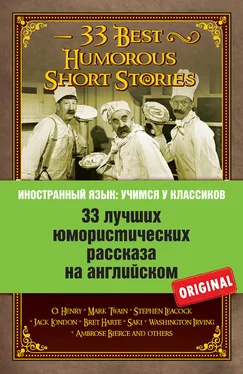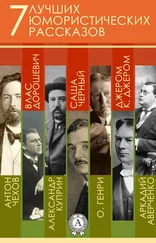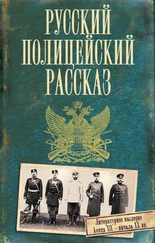I told you about Spot breaking into our meat-cache. It was nearly the death of us. There wasn’t any more meat to be killed, and meat was all we had to live on. The moose had gone back several hundred miles and the Indians with them. There we were. Spring was on, and we had to wait for the river to break. We got pretty thin before we decided to eat the dogs, and we decided to eat Spot first. Do you know what that dog did? He sneaked. Now how did he know our minds were made up to eat him? We sat up nights laying for him, but he never came back, and we ate the other dogs. We ate the whole team.
And now for the sequel. You know what it is when a big river breaks up and a few billion tons of ice go out, jamming and milling and grinding. Just in the thick of it, when the Stewart went out, rumbling and roaring, we sighted Spot out in the middle. He’d got caught as he was trying to cross up above somewhere. Steve and I yelled and shouted and ran up and down the bank, tossing our hats in the air. Sometimes we’d stop and hug each other, we were that boisterous, for we saw Spot’s finish. He didn’t have a chance in a million. He didn’t have any chance at all. After the ice-run, we got into a canoe and paddled down to the Yukon, and down the Yukon to Dawson, stopping to feed up for a week at the cabins at the mouth of Henderson Creek. And as we came in to the bank at Dawson, there sat that Spot, waiting for us, his ears pricked up, his tail wagging, his mouth smiling, extending a hearty welcome to us. Now how did he get out of that ice? How did he know we were coming to Dawson, to the very hour and minute, to be out there on the bank waiting for us?
The more I think of that Spot, the more I am convinced that there are things in this world that go beyond science. On no scientific grounds can that Spot be explained. It’s psychic phenomena, or mysticism, or something of that sort, I guess, with a lot of Theosophy thrown in. The Klondike is a good country. I might have been there yet, and become a millionnaire, if it hadn’t been for Spot. He got on my nerves. I stood him for two years all together, and then I guess my stamina broke. It was the summer of 1899 when I pulled out. I didn’t say anything to Steve. I just sneaked. But I fixed it up all right. I wrote Steve a note, and enclosed a package of ‘ rough-on-rats,’ telling him what to do with it. I was worn down to skin and bone by that Spot, and I was that nervous that I’d jump and look around when there wasn’t anybody within hailing distance. But it was astonishing the way I recuperated when I got quit of him. I got back twenty pounds before I arrived in San Francisco, and by the time I’d crossed the ferry to Oakland I was my old self again, so that even my wife looked in vain for any change in me.
Steve wrote to me once, and his letter seemed irritated. He took it kind of hard because I’d left him with Spot. Also, he said he’d used the ‘rough-on-rats,’ per directions, and that there was nothing doing. A year went by. I was back in the office and prospering in all ways – even getting a bit fat. And then Steve arrived. He didn’t look me up. I read his name in the steamer list, and wondered why. But I didn’t wonder long. I got up one morning and found that Spot chained to the gate-post and holding up the milkman. Steve went north to Seattle, I learned, that very morning. I didn’t put on any more weight. My wife made me buy him a collar and tag, and within an hour he showed his gratitude by killing her pet Persian cat. There is no getting rid of that Spot. He will be with me until I die, for he’ll never die. My appetite is not so good since he arrived, and my wife says I am looking peaked. Last night that Spot got into Mr. Harvey’s hen-house (Harvey is my next door neighbor) and killed nineteen of his fancy-bred chickens. I shall have to pay for them. My neighbors on the other side quarrelled with my wife and then moved out. Spot was the cause of it. And that is why I am disappointed in Stephen Mackaye. I had no idea he was so mean a man.
There is no gainsaying that the Solomons are a hard-bitten bunch of islands. On the other hand, there are worse places in the world. But to the new chum who has no constitutional understanding of men and life in the rough, the Solomons may indeed prove terrible.
It is true that fever and dysentery are perpetually on the walk-about, that loathsome skin diseases abound, that the air is saturated with a poison that bites into every pore, cut, or abrasion and plants malignant ulcers, and that many strong men who escape dying there return as wrecks to their own countries. It is also true that the natives of the Solomons are a wild lot, with a hearty appetite for human flesh and a fad for collecting human heads. Their highest instinct of sportsmanship is to catch a man with his back turned and to smite him a cunning blow with a tomahawk that severs the spinal column at the base of the brain. It is equally true that on some islands, such as Malaita, the profit and loss account of social intercourse is calculated in homicides. Heads are a medium of exchange, and white heads are extremely valuable. Very often a dozen villages make a jack-pot, which they fatten moon by moon, against the time when some brave warrior presents a white man’s head, fresh and gory, and claims the pot.
All the foregoing is quite true, and yet there are white men who have lived in the Solomons a score of years and who feel homesick when they go away from them. A man needs only to be careful – and lucky – to live a long time in the Solomons; but he must also be of the right sort. He must have the hallmark of the inevitable white man stamped upon his soul. He must be inevitable. He must have a certain grand carelessness of odds, a certain colossal self-satisfaction, and a racial egotism that convinces him that one white is better than a thousand niggers every day in the week, and that on Sunday he is able to clean out two thousand niggers. For such are the things that have made the white man inevitable. Oh, and one other thing – the white man who wishes to be inevitable, must not merely despise the lesser breeds and think a lot of himself; he must also fail to be too long on imagination. He must not understand too well the instincts, customs, and mental processes of the blacks, the yellows, and the browns; for it is not in such fashion that the white race has tramped its royal road around the world.
Bertie Arkwright was not inevitable. He was too sensitive, too finely strung, and he possessed too much imagination. The world was too much with him. He projected himself too quiveringly into his environment. Therefore, the last place in the world for him to come was the Solomons. He did not come, expecting to stay. A five weeks’ stop-over between steamers, he decided, would satisfy the call of the primitive he felt thrumming the strings of his being. At least, so he told the lady tourists on the Makembo , though in different terms; and they worshipped him as a hero, for they were lady tourists and they would know only the safety of the steamer’s deck as she threaded her way through the Solomons.
There was another man on board, of whom the ladies took no notice. He was a little shriveled wisp of a man, with a withered skin the color of mahogany. His name on the passenger list does not matter, but his other name, Captain Malu, was a name for niggers to conjure with, and to scare naughty pickaninnies to righteousness from New Hanover to the New Hebrides. He had farmed savages and savagery, and from fever and hardship, the crack of Sniders and the lash of the overseers, had wrested five millions of money in the form of bê che-de-mer, sandalwood, pearl-shell and turtle-shell, ivory nuts and copra, grasslands, trading stations, and plantations. Captain Malu’s little finger, which was broken, had more inevitableness in it than Bertie Arkwright’s whole carcass. But then, the lady tourists had nothing by which to judge save appearances, and Bertie certainly was a fine-looking man.
Читать дальше
Конец ознакомительного отрывка
Купить книгу












